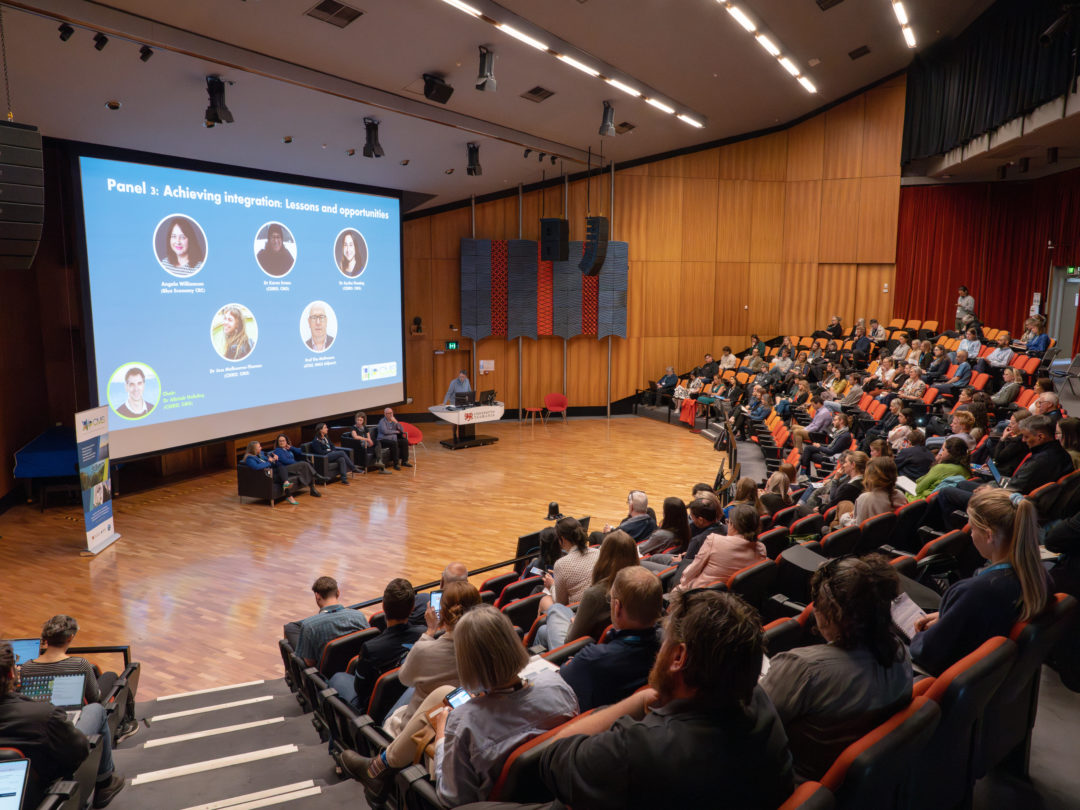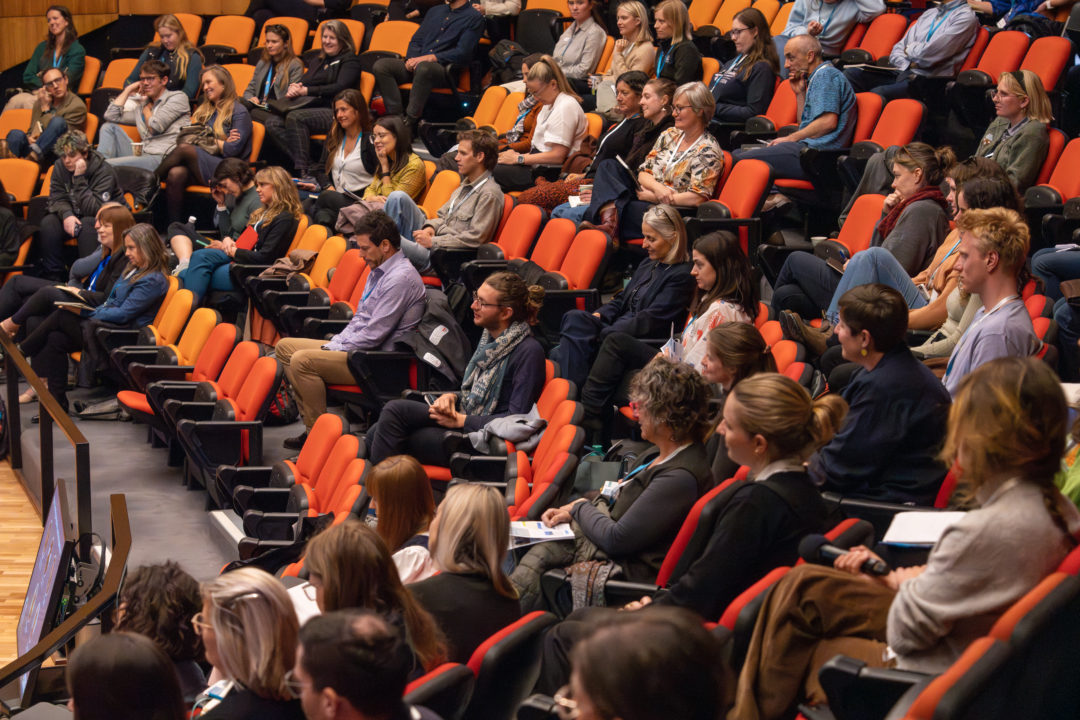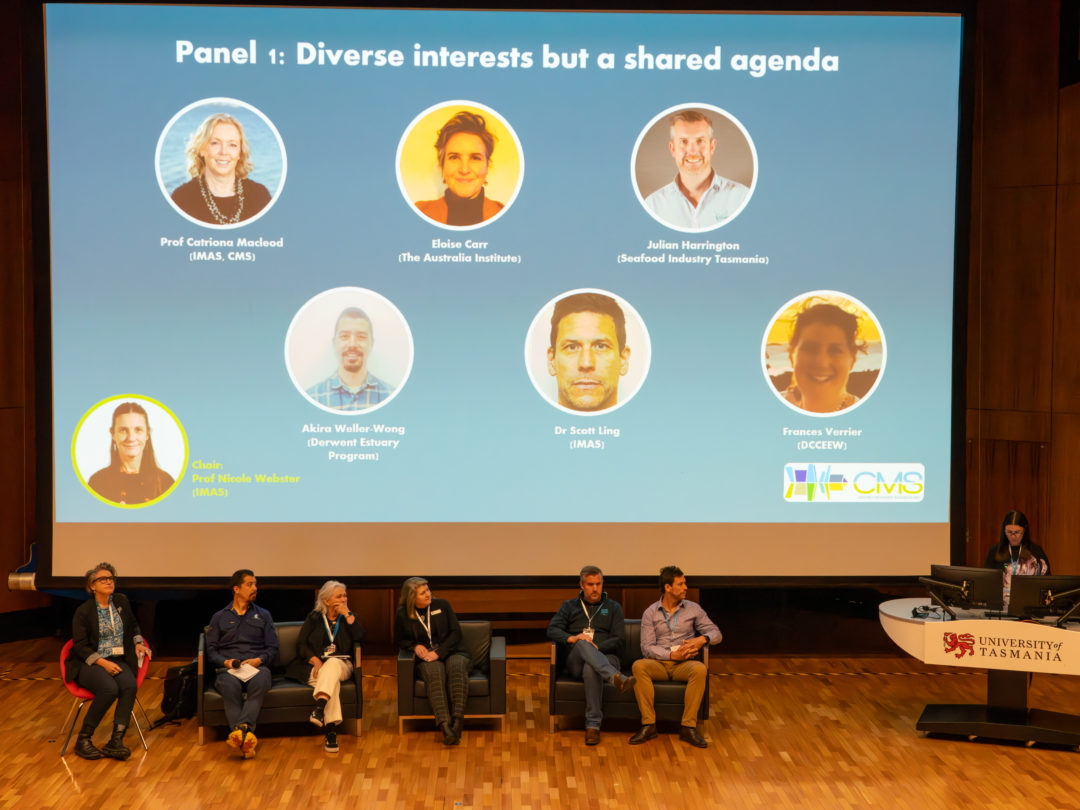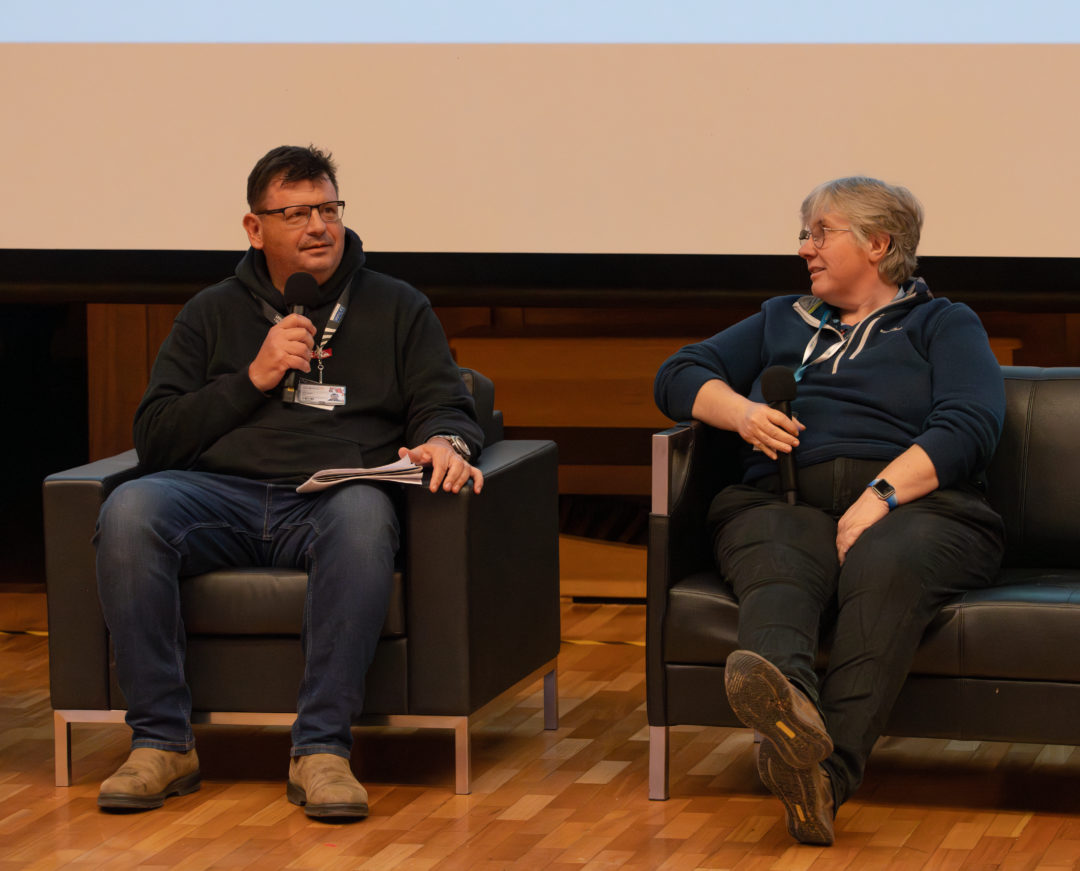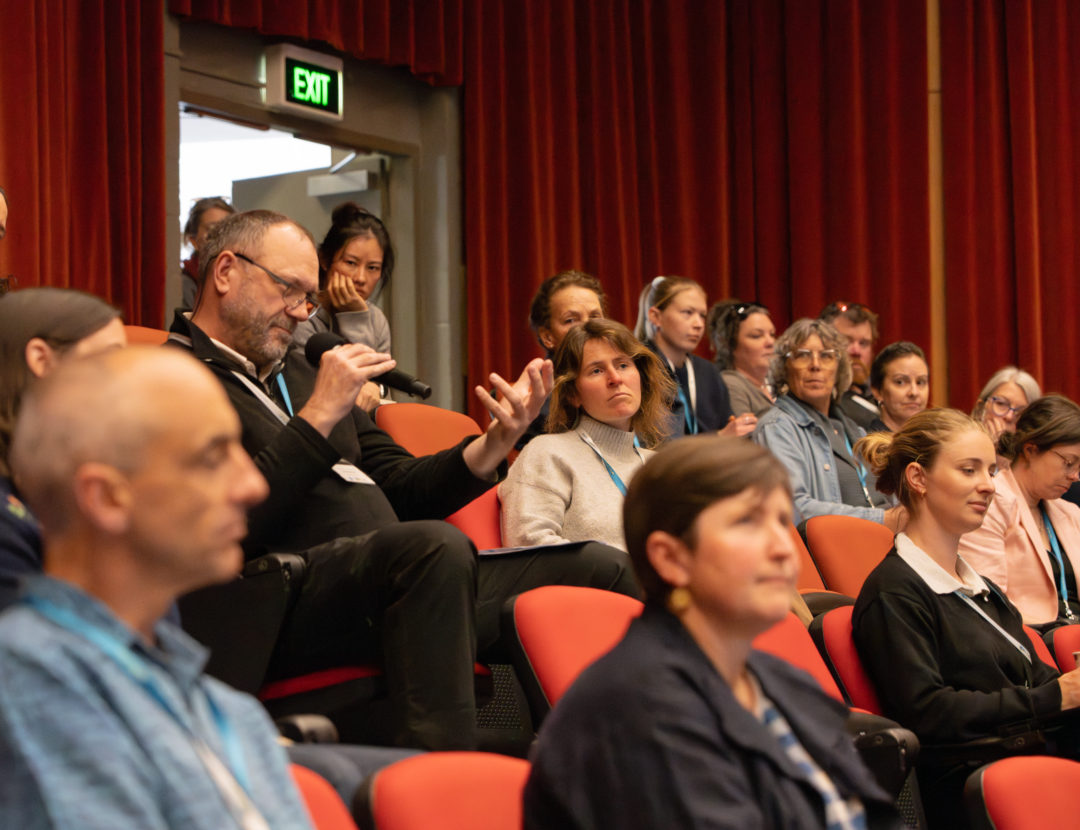As climate impacts intensify in our oceans, novel marine climate interventions—from coral restoration to ocean alkalinity enhancement—are rapidly emerging. But are we ready to govern them responsibly? New studies led by Assoc Prof Emily Ogier (CMS/IMAS) and Dr Sarah Lawless, and with co-authors including CMS Director Prof Gretta Pecl and CMS members Dr Georgina Gurney, Dr Cayne Layton, Dr Kirsty Nash and Dr Phillipa Cohen (Nature Climate Change & Cell Reports Sustainability, 2025) reveal a critical pacing problem: the speed of innovation is outstripping our governance systems, risking unintended ecological, social, and cultural consequences.
Key Insights:
What can we do?
Researchers
Governments
Funders
Practitioners
These findings are a call to action: to ensure marine climate interventions are not only ecologically effective but also socially just and ethically sound. Let’s build ocean futures that are resilient, inclusive, and responsible!
Read more:
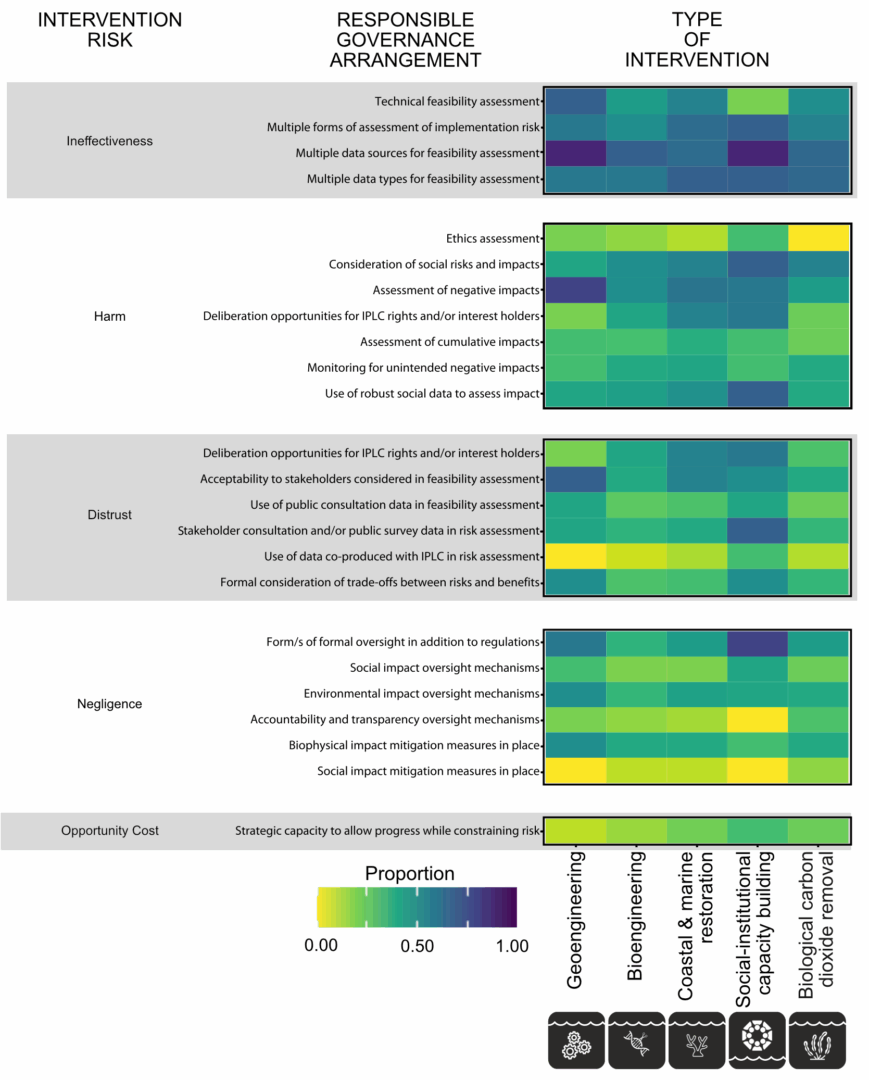
In April, the CMS ran its third Interdisciplinary School. This one-week intensive course is a unique model for interdisciplinary training and socially engaged education and has an applied, real-world focus.

The course was led by Rachel Kelly, and supported by Georgina Gurney, the School’s Equity Specialist Chair, and Gretta Pecl, CMS Director. It brought together nearly 20 participants from different academic disciplines and backgrounds. These participants included students from CMS and UTAS, as well as students and professionals from external organisations including from interstate. The diverse cohort contributed to a rich, interdisciplinary learning environment that emphasised collaboration and inclusivity.
At the start of the week, students were introduced to real-world challenges presented by stakeholders from Huon Valley Council, NRE Recreational Fisheries, and the Tasmanian diving community. The stakeholders posed problems they were currently facing, and students were tasked with working collaboratively in multidisciplinary teams to develop innovative and feasible project proposals aimed at addressing these problems. At the end of the week, students presented their project proposals to a panel of stakeholders and CMS ECRs and senior researchers.

The lectures and sessions that delivered by CMS researchers over the week supported the student work. The interactive panel discussions offered students opportunity to engage with CMS researchers, ask questions, and reflect on the range of perspectives being discussed.
The students’ feedback was overwhelmingly positive, in particular they highlighted the opportunity to work on real-world problems, and the chance to collaborate across disciplines.
The Centre for Marine Socioecology is pleased to announce that the CMS Annual Report 2024 is now ready to read!
This report provides an outline of the research, knowledge sharing and other activities undertaken by the Centre for Marine Socioecology in 2024. Our tenth year has been a big one and we are proud of 2024 as another full year of activity. From collaborative research that led to nearly 100 papers, to sharing our experiences via invited presentations, conference sessions, and engagement with the public and our stakeholders. The breadth and diversity of CMS activities and the level of achievement described in this annual report underlines that the Centre remains a strong and vibrant nexus for high quality interdisciplinary and transdisciplinary research and training.
Please view/download the report below:
This recent report summarises the results of the first-ever assessment of the annual expenditure required to meet the Australian Government’s commitment to prevent extinctions in marine environments.
The research was undertaken by a team of environmental scientists at the University of Melbourne’s Melbourne Biodiversity Institute, including CMS Director Prof Gretta Pecl as a contributing author. The research was supported by the Australian Marine Conservation Society and Biodiversity Council.
Read the report here: The cost of preventing extinctions in Australia’s marine environment | Biodiversity Council Australia
How to cite this material:
Biodiversity Council and Australian Marine Conservation Society (2025). The cost of preventing extinctions in Australia’s marine environment. March 2025. Report. Melbourne, Australia.
Building on our global reputation as a leader in climate action, a team of more than 45 academic and professional staff spanning 14 areas across UTAS has come together to create the university's first climate change-focused MOOC.
The 20-hour Massive Open Online Course (MOOC) is called ‘The Climate Shift: Exploring Science, Empowering Action’, and is now available to the public at no cost.
View the new MOOC online now: www.utas.edu.au/climate-mooc
The MOOC takes an innovative approach to delivering science-backed information about the climate, making the knowledge of UTAS experts more accessible to a diverse audience.
MOOC participants will find a multidisciplinary approach that covers the various facets of climate change, encompassing environmental, economic, social, and technological perspectives with course modules hosted by IMAS researchers Dr Ed Doddridge and Professor Delphine Lannuzel.
Modules include the fundamental science behind climate change, human influences that contribute to climate change and the impacts of climate change on our polar regions, weather patterns and global communities. We also explore strategies to mitigate climate change and how we can achieve net-zero, and the adaptation of species and ecosystems.
Participants can engage in a range of content types including written content, videos and student-led elements. They’ll also be encouraged to listen to podcast components while out in nature, and to apply practical tools at home and in their own communities.
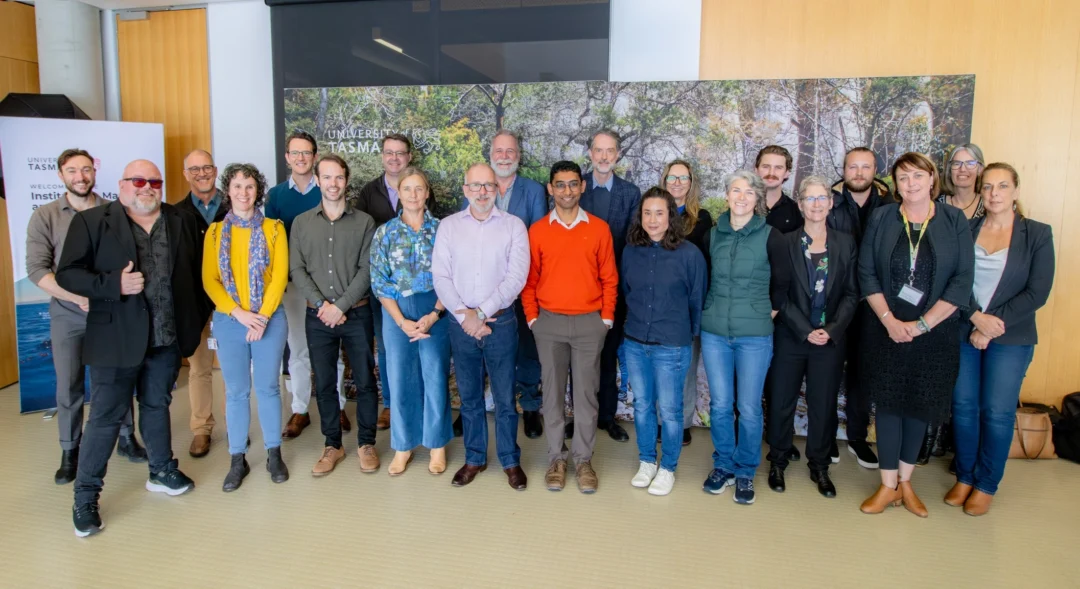
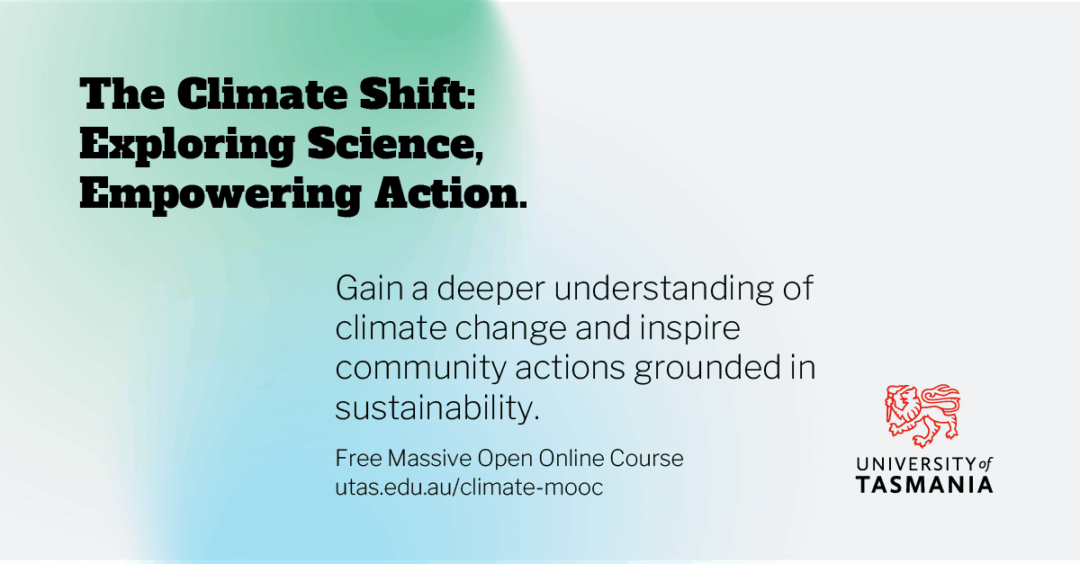
Oceans are at the forefront of many new climate-related projects, but the speed that these projects are being developed and expanded is outpacing the ability to govern them effectively – and manage their potential impacts on marine ecosystems and communities.
A new study published in Nature Climate Change highlights the wide variety of marine-climate interventions proposed or already deployed across 37 marine systems – and shows that the speed of innovation is outstripping the ability to manage it responsibly. This includes verifying their real value in capturing and storing carbon dioxide over time, and ensuring appropriate regulations are in place to prevent unintended marine ecosystem impacts.
“Our rapidly changing climate and warming oceans have created a clear and urgent need for innovative actions to sustain marine ecosystems and the communities that depend on them,” said lead author, Associate Professor Emily Ogier, who is a marine sociologist at the University of Tasmania’s Institute for Marine and Antarctic Studies (IMAS), and member of the Centre for Marine Socioecology (CMS).
“Actions being explored range from climate mitigation actions such as blue carbon programs and other marine carbon dioxide removal technologies, to climate adaptation actions including coral and seaweed replanting, and breeding marine species that are more tolerant to warming water.
“But while trials are underway across a variety of these new marine-climate interventions, the effectiveness of many projects is not clear, there is limited planning, and the potential to cause harm is under-regulated. So we’re seeing a ‘pacing problem’,” Associate Professor Ogier said.
The study team surveyed 332 marine-climate project practitioners worldwide about this rapidly emerging field. They gathered information on the types of projects being developed or deployed, and their locations, stages of development, climate goals and governance arrangements.
“We found there were limited efforts to understand and solve the pacing problem between marine governance and climate intervention actions,” said IMAS marine ecologist, co-author and CMS Director, Professor Gretta Pecl.
“We were able to classify the major types of marine-climate intervention projects, and to extend existing frameworks for research and innovation to include responsible governance – and it revealed that governance arrangements are not keeping up with the pace of innovation.”
A huge congratulations to CMS Director Prof Gretta Pecl for being inducted into the 2025 Tasmanian Honour Roll of Women, for her service to science, technology; environment.
Professor Pecl AM is an internationally recognised marine ecologist whose work has transformed our understanding of climate change impacts on marine ecosystems.
Her research has influenced environmental policy and strengthened connections between science and the broader community.
“It’s an honour to be recognised among the incredible women on the Tasmanian Women’s Honour Roll, who contribute so much to our community,” Professor Pecl said.
“I’m especially glad to see scientists celebrated, as Tassie is a true powerhouse of research.”
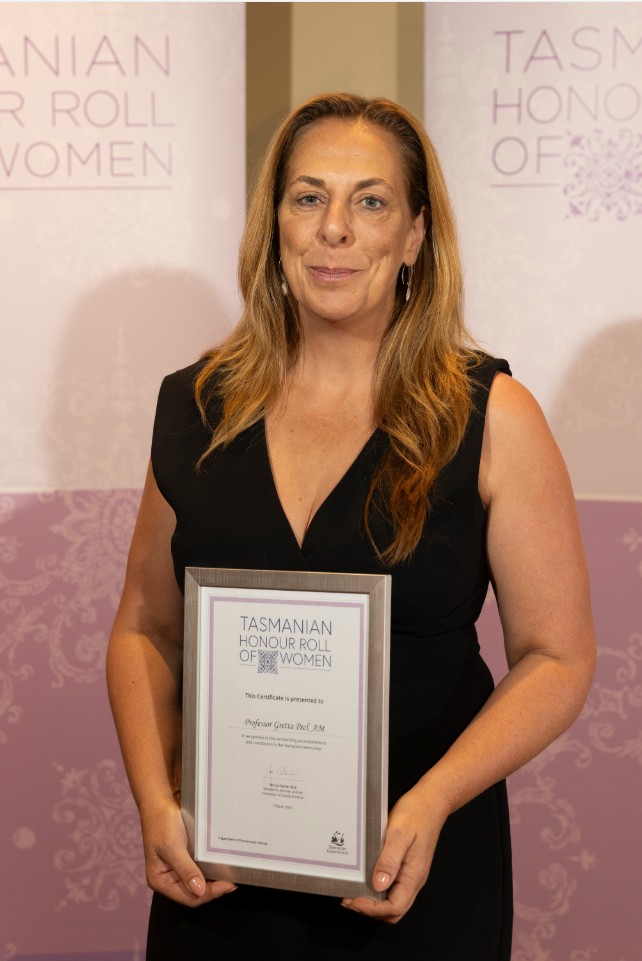

Telstra NATSIAA People’s Choice Award Winner – Dean Greeno for tunapri milaythina muka, to know Sea Country through making
Dean Greeno a truwulway pakana man of lutruwita (Tasmania) has been announced as the Telstra People’s Choice Award winner, in the 2024 Telstra National Aboriginal and Torres Strait Islander Art Awards Telstra (NATSIAA), presented on Larrakia Country by the Museum and Art Gallery of the Northern Territory (MAGNT) in partnership with Telstra.
With the People’s Choice award receiving an impressive total of 1,167 votes, Dean Greeno secured the majority of the People’s Choice votes. The top three artists were rounded out by Thea Anamara Perkins’ mesmerising painting Return and Mardawi Lakun (Sister Weavers) with their incredible weaving Thukabi, meaning turtle in Ngarrindjeri. Mardawi Lakun is a collaboration between Aunty Ellen Trevorrow, Temeika Campbell, Bessie Rigney, Elizabeth Rankine and Margeret Sumner.
Dean’s artwork is a testament to the memories and teachings passed down through his family and his win reflects the ongoing support and appreciation for Aboriginal and Torres Strait Islander art in Australia.
The 2024 Telstra NATSIAA exhibition was visited by more than 142,000 people during the exhibition period of seven months.
The Telstra NATSIAA is the longest running Aboriginal and Torres Strait Islander art awards in the country. The Telstra NATSIAA is also proudly the longest running and most prestigious art prize of its kind in Australia.
This year, 72 finalists from across Australia were selected from a total of 230 entries.
Telstra NATSIAA artists share in a total of $190,000 with the prize money for the major Telstra Art Award $100,000 and each of the category awards $15,000.
Quote from Dean Greeno
“Thank you to all the staff, supporters and patrons of the Telstra NATSIAA and MAGNT. I would like to recognise the Larrakia and Larrakia Country. I would like to thank my family, my community and my Country, Sea, Land, and Sky, for building the stoicism, the resilience and fortitude that allowed me to assemble this artwork based on the continued walk of my people to truth telling, treaty and self-determination.
My experience during the Awards will remain with me for the rest of my life. It has been an amazing, immersive and thoroughly rewarding experience as a pakana artist.”
Quote from MAGNT Director Adam Worrall
"Congratulations to Dean Greeno for creating a work that has captured the hearts and minds of our audience. His win reflects his brilliant creativity and stands as a testament to the continuous cultural practices in lutruwita and beyond. Today we celebrate Dean and his achievement, well done!"
For more information, please visit www.natsiaa.com.au.
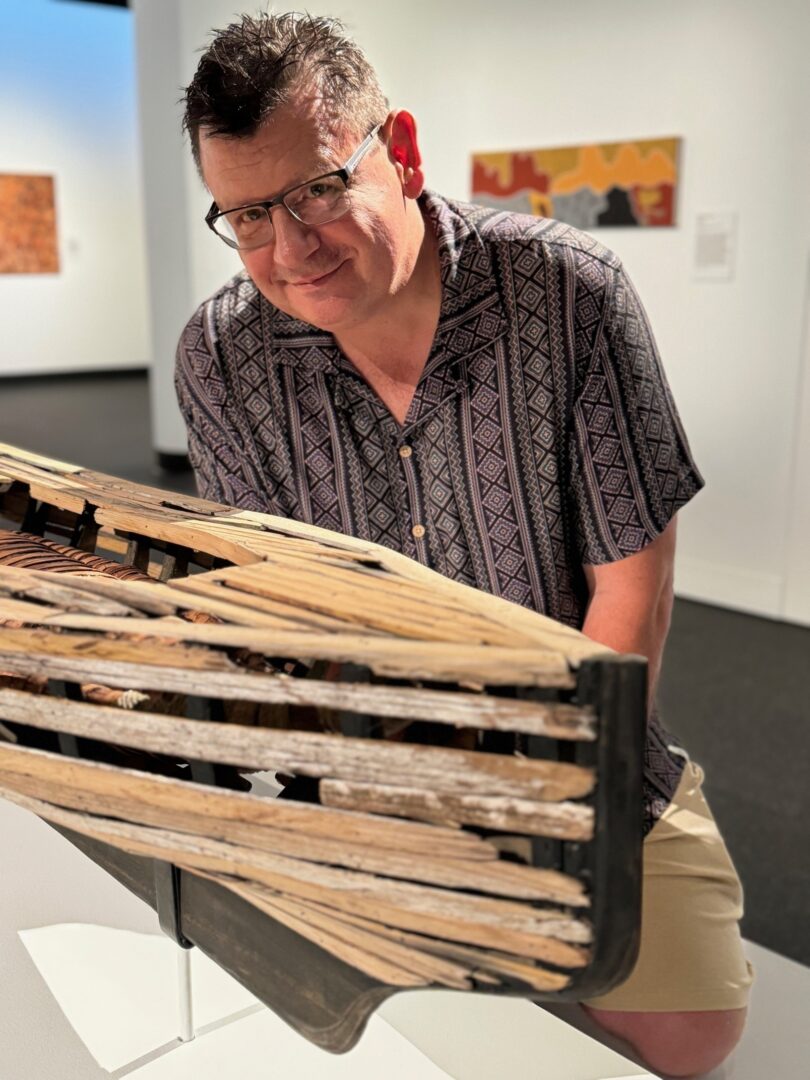
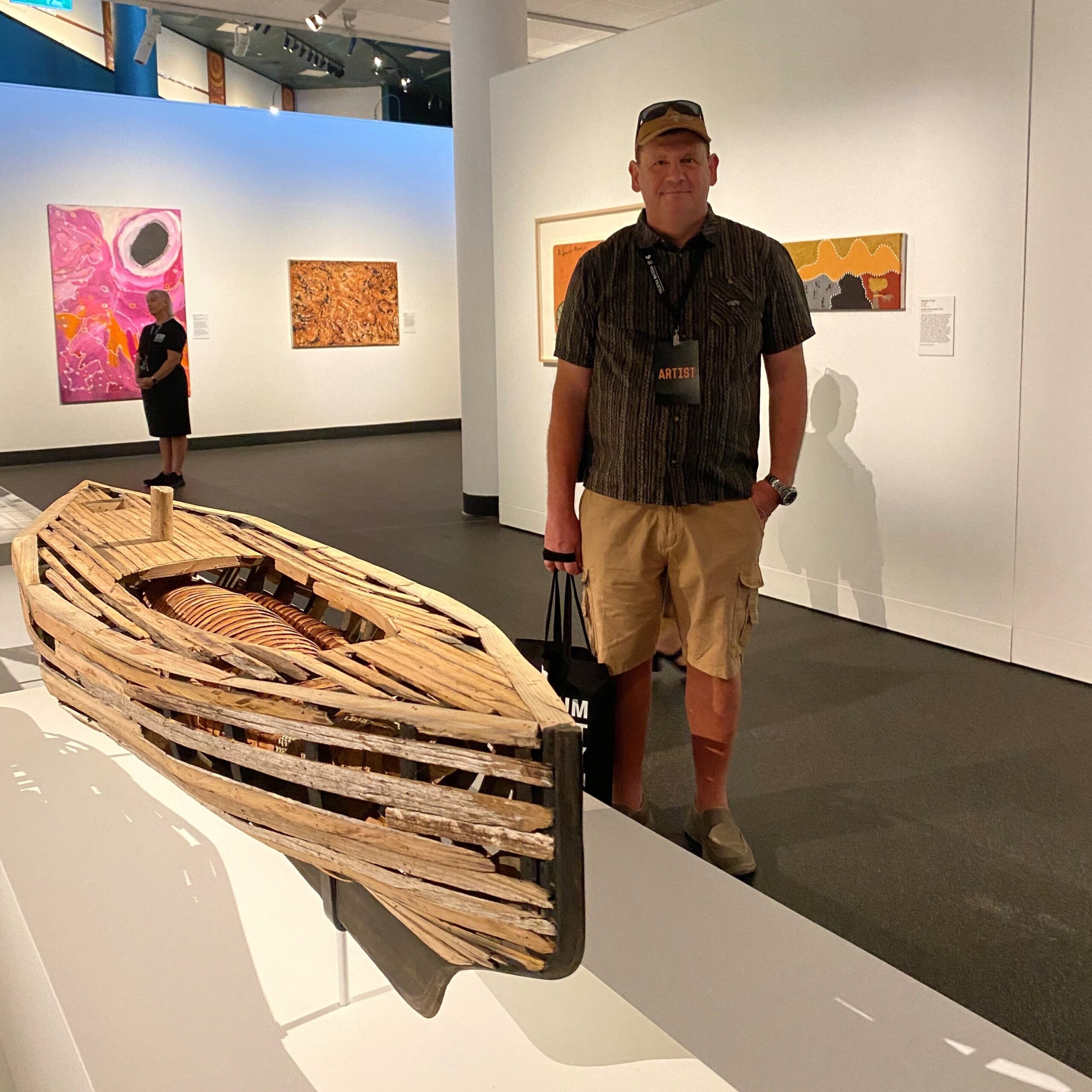
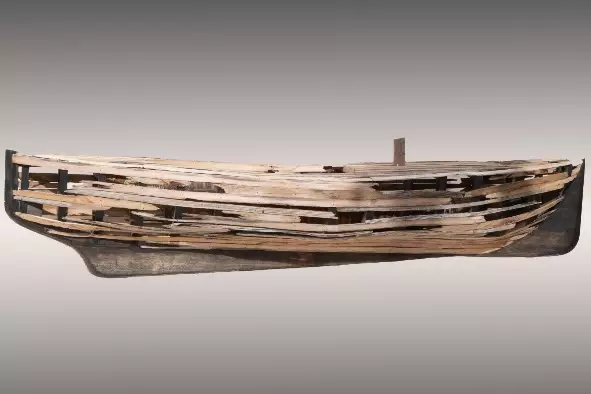
Congratulations to the 'UQ Indigenous research leadership on climate change and health team' (which includes CMS Director Prof Gretta Pecl), who won the University of Queensland’s 2024 Faculty of Medicine Award for ‘Spirit of Reconciliation’.
A UQ-led team of Aboriginal, Torres Strait Islander, and non-Indigenous scholars was commissioned by the Australian Government to prioritise Indigenous voices in climate change and health, particularly for future IPCC reports. After fieldwork on remote Country, the team produced a report shared with the IPCC and launched in Australian Parliament. Their work highlighted the importance of Indigenous knowledge in addressing climate health impacts, contributed to more inclusive climate reports, and strengthened collaboration and culturally appropriate research within the Faculty.
More details are here: https://medicine.uq.edu.au/faculty-medicine-excellence-awards/2024-faculty-medicine-excellence-awards
This work was also supported by DCCEEW.
The CMS held our annual showcase event in Hobart/Nipaluna on 28th October 2024, with over 160 people in attendance from over 40 organisations, ranging from our members and students, to government representatives, industry representatives, researchers, and traditional owners and custodians.
The CMS Showcase 2024 event was structured around a series of panels with researchers, government, industry representatives and traditional owners (i.e. allowing participants to shape discussion and agendas), short presentation sessions from our interdisciplinary researchers (i.e. brief overview of the current/future CMS work and research), as well as interactive workshopping focused on identifying risks, opportunities and critical marine issues for the years ahead. The day created opportunities for open dialogue and Q & A throughout the day, generating fruitful discussions and allow for important networking and collaborative relationships.
Please view the CMS Showcase 2024 Report
Please view the CMS Showcase 2024 Agenda
We would like to thank all who attended, presented, and supported this event, and we can't wait to host our Showcase event again next year!
You can also view the agenda and report from last year here: CMS Showcase 2023: Connections and collaborations to ensure a thriving future ocean
